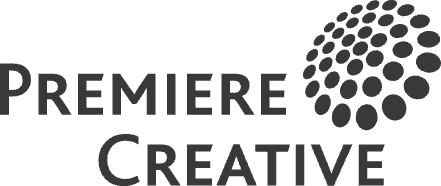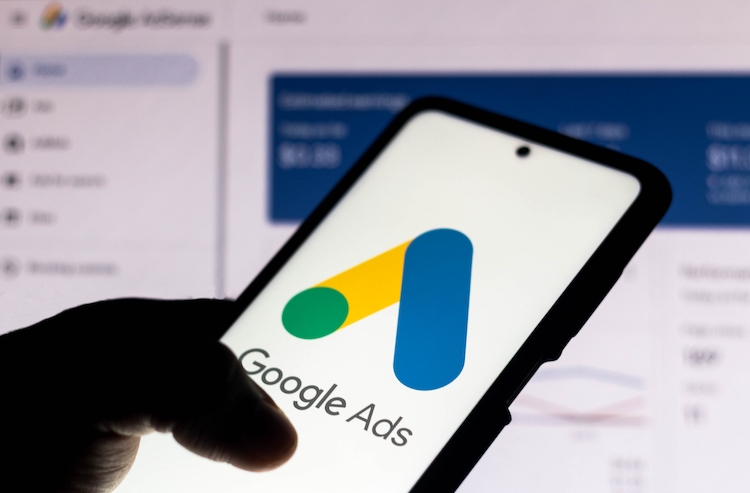Pay-Per-Click (PPC) advertising quickly became paramount in digital marketing strategies, enabling businesses to reach their target audiences and generate valuable traffic, leads, and sales. Factors such as consumer behaviors, technological advancements, and industry shifts can significantly influence how we run PPC campaigns.
By comprehending and adapting to these latest trends, businesses can keep their PPC campaigns impactful, resulting in improved outcomes. Let’s delve into the key trends that will shape the future of PPC advertising.
Join the Voice Search Revolution
Our browsing habits changed, and voice search stands at the forefront of this revolution. The growing popularity of voice-enabled devices, such as smartphones, smart speakers, and virtual assistants, made voice search more prevalent, and we expect more growth throughout 2024.
Voice search presents a convenient and hands-free alternative to traditional text-based search methods. Users can effortlessly express their query keywords, and AI-powered virtual assistants like Siri, Google Assistant, or Amazon’s Alexa will promptly provide immediate responses.
In 2024, digital marketers should focus on optimizing PPC campaigns for voice search to capture the expanding audience embracing this technology. When users engage with voice assistants, they tend to ask questions in a conversational manner, employing long-tail keywords and natural language. Consequently, traditional keyword strategies may require adaptation to accommodate these evolving patterns.
Thus, businesses should focus on Voice Search by deploying the following strategies:
- Integrate Long-Tail Keywords: These keywords mimic the conversational style of voice search queries, increasing the chances of matching user queries and appearing in relevant voice search results.
- Provide Direct Answers: Crafting ad copy that offers concise and relevant answers to common queries enhances the likelihood of being featured in voice search results. Utilizing structured snippets, callouts, and ad extensions can also highlight specific information that voice assistants can easily extract and present to users.
- Optimize Your Local Presence: Voice search queries frequently revolve around location-specific inquiries, with users often seeking nearby businesses or services. Incorporate local keywords and up-to-date information on platforms like Google My Business.
- Focus on Mobile Optimization: Since voice search heavily relies on mobile devices, prioritizing mobile optimization becomes essential. Ensure that your website and landing pages are mobile-friendly, offering fast loading speeds and clear navigation.
Harnessing AI and Machine Learning
Artificial intelligence (AI) and machine learning will shape PPC in 2024 by automating tasks, enhancing targeting capabilities, and optimizing campaign performance. In 2024, utilizing these technologies will become vital for businesses aiming to stay competitive and achieve optimal results from their PPC endeavors.
- Automation and Efficiency: Use automation of various PPC tasks, saving marketers time and effort. Bidding strategies, ad group creation, ad copy optimization, and performance tracking can be automated, freeing up marketers to focus on strategy and creativity.
- Advanced Targeting: AI can analyze large datasets to identify patterns and behaviors, enabling precise audience targeting. Marketers can leverage these algorithms to identify the most relevant audience segments, interests, and demographics for their campaigns.
- Predictive Analytics: Machine learning algorithms can analyze historical data and identify trends and patterns that humans might miss. This predictive analysis enables marketers to make data-driven decisions regarding bidding, budget allocation, and campaign optimization.
- Ad Copy Optimization: Use machine learning algorithms to optimize ad copy based on performance metrics, such as click-through rates and conversion rates.
The Growth of PPC on Social Media
In recent years, businesses finally recognized the immense potential of social media PPC as a robust means to connect with their customers – an upward trend projected to persist throughout 2024. Several factors contribute to the growth of social media PPC include:
- Extensive Reach: Leading social media platforms like Facebook, Instagram, Twitter, LinkedIn, and Pinterest boast billions of active users.
- Advanced Targeting Options: Social media platforms offer robust targeting capabilities that empower businesses to precisely reach their desired audience segments. This level of granular targeting ensures that ads are delivered to the right people, increasing the chances of engagement and conversions.
- Diverse Ad Formats: Social media platforms offer a wide range of ad formats, including images, videos, carousels, stories, and sponsored content.
- Engaging User Experience: Users actively participate in conversations, share content, and express their preferences. By leveraging social media PPC, businesses can tap into this engaged audience and build meaningful connections with their customers.
Personalization and Targeting
Personalization in PPC involves customizing ad content, messaging, and offers to match the specific needs, preferences, and behaviors of individual users. By understanding their target audience’s unique characteristics, businesses can create more meaningful interactions and foster stronger relationships with potential customers.
Here are some strategies to implement personalization and targeting in your PPC campaigns:
- Audience Segmentation: Divide your target audience into distinct segments based on demographics, interests, or buying behaviors.
- Dynamic Ad Copy: Utilize dynamic ad copy that automatically adjusts based on user attributes or context. Incorporate elements like the user’s location, search history, or previous interactions with your brand to create highly personalized and engaging ad experiences.
- Remarketing: Implement remarketing campaigns to re-engage users who have previously interacted with your website or shown interest in your products or services.
- Utilize Customer Data: Leverage customer data to gain insights into their preferences, purchase history, and behaviors.
- A/B Testing: Test various elements such as headlines, images, calls-to-action, and offers to identify the most effective combinations for different audience segments.
Remember, personalization and targeting go hand in hand. By understanding your audience and tailoring your ads to their specific needs and preferences, you can deliver a more relevant and engaging experience, driving better performance and ROI (Return on Investment) for your PPC campaigns.
Advanced Attribution Models
Attribution involves determining which marketing channels or touchpoints are responsible for driving conversions. In 2024 and the upcoming years, marketers must prioritize enhancing their attribution models to accurately track and measure the effectiveness of their PPC campaigns.
Traditionally, the default model for attribution has been last-click attribution, which attributes the entire credit for a conversion to the last touchpoint before the conversion occurs. However, this model oversimplifies the customer journey and overlooks the multiple touchpoints and interactions that may have influenced the final decision.
To achieve more accurate attribution in PPC campaigns, businesses can explore adopting advanced attribution models:
- Multi-Touch Attribution: When adopting a multi-touch attribution approach, marketers consider all touchpoints throughout the customer journey and assign credit to each touchpoint based on its influence. This model delivers a comprehensive view of the customer journey, enabling marketers to identify the key interactions that contribute to conversions.
- Data-Driven Attribution: With data-driven attribution, machine learning algorithms analyze extensive data sets to identify the significant touchpoints that contribute to conversions. This model provides a more precise representation of the customer journey by considering factors like channel interactions, ad exposures, and timing.
- Customized Attribution Models: Businesses have the flexibility to create customized attribution models tailored to their specific goals and objectives. By incorporating industry-specific insights and considering the unique characteristics of their target audience, businesses can develop attribution models that align with their marketing strategies.
Elevate Your PPC Advertising in 2024 with Premiere Creative
Staying updated on the latest PPC trends is crucial for marketers and businesses to maintain the effectiveness and impact of their campaigns. As we look ahead to 2024, we anticipate significant transformations in PPC advertising, driven by the rise of voice search, advancements in AI and machine learning, the growth of social media PPC, and the importance of personalization and targeting.
To navigate these trends successfully and ensure your PPC campaigns thrive in the evolving digital landscape, partnering with a knowledgeable and experienced digital marketing agency like Premiere Creative can make all the difference.
Dial (973) 346-8100 to schedule a consultation. Don’t miss the chance to elevate your PPC advertising to new heights in 2024.

